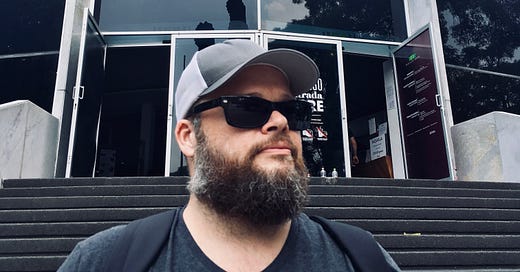[Personal Experience]
For 48 years, autism and ADHD defined my life, and I didn’t even realize it. During those years, I did some amazing things. I went to school, I traveled, I worked, and I met a number of amazing people. I simultaneously masked, experienced traumas, and was always tired.
A change began when I started talk therapy in 2017. Over several years, I learned to advocate for myself and acknowledge the immense shame I carried. In this new space, I developed self-compassion enough to explore who I was and what I needed. This led to self-diagnoses in 2023, a series of tests, and formal diagnoses later that same year. A lot has happened since then. I’ve taken my special interests of the social sciences, performance improvement, and neurodiversity (that becomes a special interest for many late-diagnosed autistics) and combined it with my neurodiverse traits like monotropism, empathy, and pattern recognition to develop a coaching program for people like me.
I realize low support needs (“Level One” autistics are called “low support needs” autistics) do not mean no support needs. There are a great number of late-diagnosed autistics out there who are ready for what’s next, but don’t know what direction to take. They want to connect to support that just isn’t there.
I awkwardly stumbled forward and looked for any and all resources I could after my diagnosis. It was a two steps forward, one-and-a-half steps back type of situation most of the time, but I found traction. I started building safe spaces to identify what matters most and to reduce masking. It’s a process I will be in for the rest of my life.
I’ve encapsulated what I learned from my personal experience and merged it with existing evidence-based theories and applications. The result is a combination of tools any adult with a late autism diagnosis can use to meet their individual needs. The framework and processes used in my practice are the same as I use myself. My goal is providing services that are valuable, relatable, and accessible to as many people as possible.
[yes, ampersand]
I write on Substack about late-diagnosed autism, ADHD, and other social science-based stuff. If you want the backstory to how this came to be, click the button below.
[Neurodivergent Coach]
I am a neurodivergent coach (mostly autism and ADHD). I help late-diagnosed neurodivergent adults embrace their unique identities, move beyond societal expectations, and build lives that reflect their authentic selves. Through the Acceptance and Commitment Coaching (ACC) Framework, I guide clients in navigating the journey of unmasking, self-acceptance, and creating meaningful, value-driven changes.
ACC for Authentic Neurodivergence empowers neurodivergent adults diagnosed later in life—to navigate unmasking with clarity, confidence, and self-compassion. Working through my SAFE Unmasking™ processes, this coaching approach supports individuals in breaking free from societal expectations, embracing their neurodivergence, and aligning their lives with their values.
🔸 S – Self-Awareness | Understand internalized biases, embrace neurodiversity as valid, and observe personal traits without judgment.
🔸 A – Authenticity | Assess how neurodivergence impacts work, relationships, and well-being while defining values and accommodations.
🔸 F – Foundations for Advocacy | Build self-advocacy skills, share experiences, and foster confidence in communicating needs.
🔸 E – Evolution & Well-Being | Develop sustainable self-care, resilience strategies, and adaptability for long-term personal growth.
[Training and Development]
Even before I had the language for it, I felt a deep connection to people who navigated the world differently. During college, I spent three and a half years working at the Seven Hills Foundation, supporting individuals with disabilities, and interned with Worcester Public Schools, supporting non-ambulatory students. Post-graduation, my work with the Department of Labor centered on expanding access and opportunities for people with disabilities.
That early work wasn’t just a job—it shaped how I see people, systems, and the strength it takes to live authentically. Now, after a late-in-life autism diagnosis, I use what I’ve learned about human behavior, performance improvement, and coaching to help others unmask and find their own way forward.
To support this work, I’ve invested in education, credentials, and professional communities that keep me grounded and growing.
Bachelor of Arts in Sociology, Philosophy minor - Clark University
Master of Arts in Human Performance Improvement - Roosevelt University
Associate Professional in Talent Development - Association for Talent Development
Certified Autism Specialist - International Board of Credentialing and Continuing Education Standards
Master Certified Professional Coach - Certified Life Coach Institute
Myers-Briggs Type Indicator Certification - Myers & Briggs Foundation
Member - International Coaching Federation
[Other Details]
I’ve lived in Mexico for over fifteen years with my husband and cats. My special interests tend to be social-science and design focused. When I’m not working I enjoy cooking, poking around in my garden, reading the news, watching YouTube, listening to music, and daydreaming on my back patio under my disco ball.





